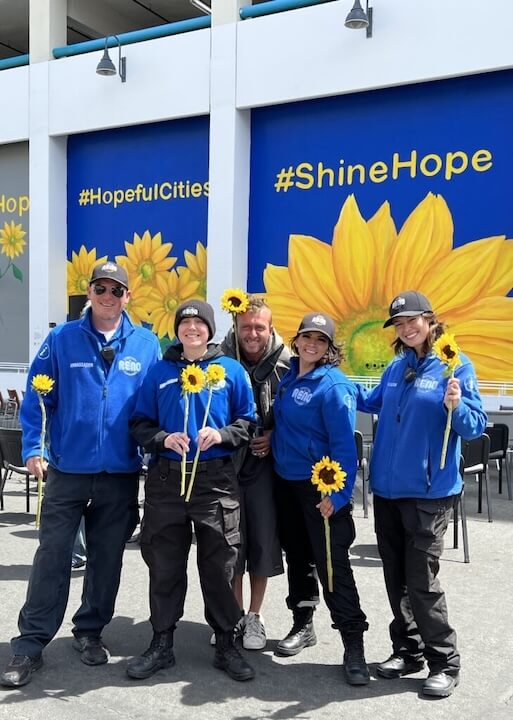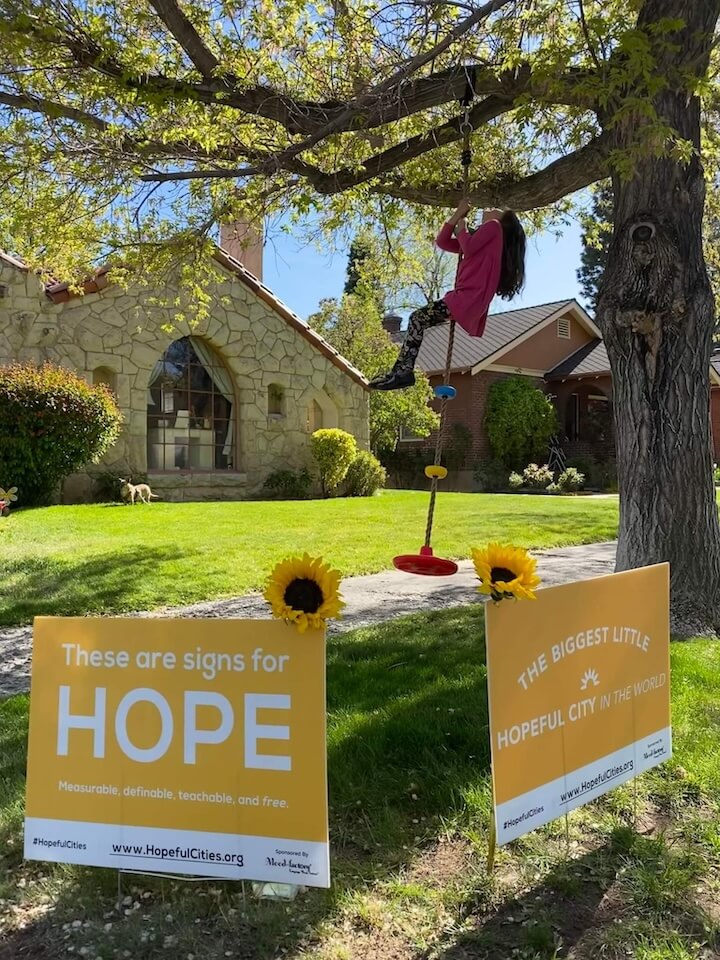About Hopeful Cities

Who We Are
Hopeful Cities started in 2020 in response to the COVID19 Pandemic in collaboration with the City of Reno, Nevada, the first-ever Hopeful City. Hopeful Cities is designed to make Hope accessible and operational in any city around the world. The Shine Hope Company took over the programming in 2023, to create a sustainable business model to improve and expand the work.
This initiative features the Hopeful Cities Playbook, a step-by-step guide to help cities activate the “how-to” of Hope in the sectors of Government, Science, Education, Workplace, Healthcare, and Art. The Eight Guiding Principles of Hopeful Cities are integrated into all interventions across these six sectors, driving change and ensuring everyone can proactively move from Hopelessness to Hope.
About The Shine Hope Company
The Shine Hope Company is on a mission to improve lives globally by teaching scientifically informed and evidence-based methods to measure and cultivate Hope. Learn how to activate Hope in your life and community at www.theshinehopecompany.com.
About iFred
iFred, a 501(c)3 organization, is working to teach Hope. iFred has worked to shine a positive light on mental health and eliminate stigma through prevention, research and education and created a shift in society’s negative perception of the disease through positive imagery, rebranding, celebrity engagement, cause marketing campaigns, and establishing the sunflower and color yellow as the international symbols for Hope. iFred worked with The Mood Factory to do the first nationwide cause marketing campaign for mental health in the US, and created the first ever program to teach Hope, based on research it is a teachable skill. Find out more at www.ifred.org.

